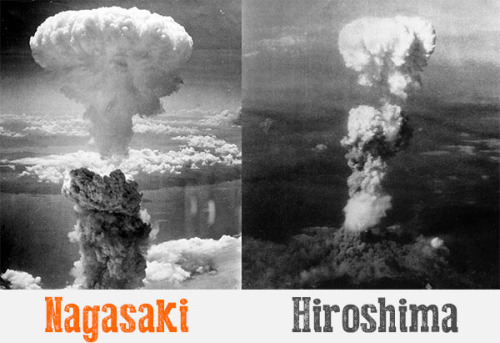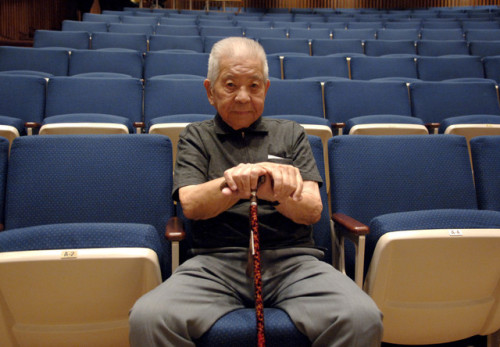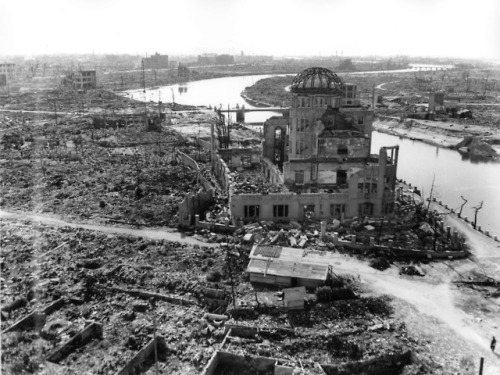congenitaldisease: Reporters never know whether to refer to Tsutomu Yamaguchi as the luckiest or unl
congenitaldisease: Reporters never know whether to refer to Tsutomu Yamaguchi as the luckiest or unluckiest man in the world; Yamaguchi is the only officially recognised survivor of both the Hiroshima and Nagasaki atomic bomb blasts at the end of the Second World War. Yamaguchi was an engineer with the shipbuilder Mitsubishi Heavy Industries and on the 6th of August, 1945, he was in Hiroshima at the end of a short-term secondment with two of his colleagues. He would later recall that he heard a loud engine noise coming from the sky above him but initially thought nothing of it as Hiroshima was an industrial city and military base. However, what he had heard was the engines of Enola Gay, the US B-29 bomber that would moments later drop the first atomic bomb on the city. Yamaguchi then saw a flash of light before being knocked to the ground unconscious by the force of the bomb. Around 140,000 of Hiroshima’s 350,000 population died instantly. Thousands more suffered burns, Yamaguchi included. Yamaguchi spent that night in an air-raid shelter which was filled with dying people. The next day, he caught a train 180 miles back home to Nagasaki, which was another industrial city and military base. On the 9th of August, Yamaguchi returned to work and told his colleagues about the horrors he had experienced. They were aghast to discover that one single bomb razed the entire city. Unbeknownst to them, another atomic bomb was heading towards Nagasaki. At around 11:02AM, there was another flash of light as the US Airforce stopped “Fat Man,” a 25-kiloton plutonium bomb which killed nearly 74,000 people and injured a similar number. Miraculously, Yamaguchi survived this second atomic bomb. Yamaguchi was deafened in one ear and his wounds were bandaged for 12 years. His wife was poisoned from the radioactive fallout and died age 88. The couple’s son - also exposed to the radioactive fallout - died at 59. Yamaguchi’s hellish experience turned him into an anti-nuclear weapons campaigner. He later went on to give talks about his experience in which he expressed his wish for such weapons to be abolished. In 2010, Yamaguchi died at his home in Nagasaki. -- source link


